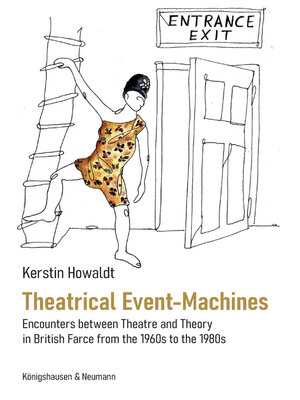Theatrical Event-Machines
ebook ∣ Encounters between Theatre and Theory in British Farce from the 1960s to the 1980s
By Kerstin Howaldt

Sign up to save your library
With an OverDrive account, you can save your favorite libraries for at-a-glance information about availability. Find out more about OverDrive accounts.
Find this title in Libby, the library reading app by OverDrive.



Search for a digital library with this title
Title found at these libraries:
| Library Name | Distance |
|---|---|
| Loading... |
Theatrical Event-Machines provides a theoretical approach to a popular
theatrical form whose invaluable contribution to British theatre
has been underestimated so far. The book examines canonical British
farces published in the 1960s, 1970s, and 1980s and proposes that the
aporetic conceptualisation of the event which makes a farce farcical is
best described by Jacques Derrida's notion of the event-machine. The
three thematic chapters explore farcical eventfulness in relation to key
concepts of both Poststructuralism and the theatre, namely genre, performance,
and mediality. In addition to performing close readings of
plays written by Alan Ayckbourn, Michael Frayn, Joe Orton, and Tom
Stoppard, the chapters discuss selected deconstructionist writings of
Derrida. The study shows that farce subverts genre conventions by
undoing events, that it rehearses events to undermine the separation
between an allegedly finalised text and imperfect performances, and
that it toys with media-induced presences and absences in order to
scrutinise the power of the event. Theatrical Event-Machines illustrates
how the rise of Poststructuralism in the 1960s has influenced farce –
and vice versa. What is more, the thorough analyses presented in this
study reveal the self-reflexivity and the meta-theatricality inherent in
farce and its potential to enact theory.







